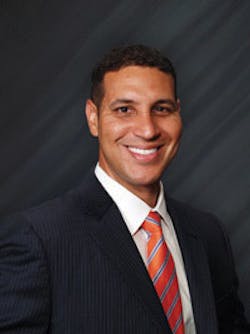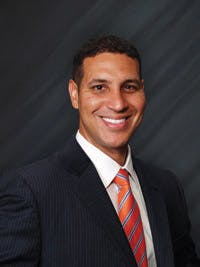A story not told: How dental service organizations can improve your practice
By Dr. Andrew Matta
December 5, 2012
Change is upon us in the dental industry. Newly emerging models for patient care, evolving clinical environments for dentists, the almost constant evolution of technology, a challenging economy for graduating dentists, and the changing transition for doctors in the latter stages of their careers are all shifting the standards long since taken for granted. These changes and more have set the stage for a tipping point in our industry.
There is a real crisis in America and multiple threats challenge the delivery model for dental care. There is an emerging shortage of dentists that will only get worse as Baby Boomer dentists begin to retire and not enough dentists graduate to fill the gap. There are regions of the country in desperate need of dentists and populations in our society woefully underserved.
One emerging model for dental care is the Dental Service Organization (DSO). The dental industry as a whole has not exactly embraced DSOs with open arms. Fearing the impact that new ideas and competition will have on their comfortable private practices has solo providers circling the wagons. Realizing that going toe-to-toe with the DSO model is a fight they can’t win, they are taking the offensive by challenging the credibility of and attempting to regulate the DSO industry.
They want you to believe that dental practices supported by DSOs are surrendering clinical quality to corporate interests that will violate laws and professional standards. Anti-DSO forces are working hard to make you think you must choose between profit-centered and patient-centered care. And major media has been very receptive to this newsworthy claim, publishing articles and stories that feed the fire. Political alliances have also been tapped to write legislature to regulate the DSO model out of the industry.
RELATED: North Carolina passes dental legislation
Is there another perspective? Should we fear and regulate the DSO industry to extinction? Or is there another side to the story?
The pro-DSO story to-date is not being told. Understandably, individual DSO companies have been reluctant to pick a fight with the larger dental community. Perhaps they hope the dental community will eventually see the advantages of the model as a strong alternative to private solo practice and accept the changes. The American Dental Association has stayed out of this fight, at least publically. The Dental Group Practice Association (DGPA) is young and, to this point, has been in reactive mode, playing defense.
The truth is that DSO companies are uniquely designed to address many of the issues that threaten the quality of dental care in this country. They have the financial wherewithal to develop practices in underserved regions and offer true market-based solutions to the crisis. This compelling story has not been told.
The “kill DSO” campaigns have been supported heartily by well-established dentists protecting their comfortable existence. But what of our younger dentists graduating with mountains of school debt and a concern about the work-life balance? The balance that allows them to put 100% of their focus and skills on clinical outcomes without the additional burden of management, ownership, entrepreneurial risk, legal liabilities, human resources demands, and more. Wouldn’t they be better served in taking the time to learn up-to-date practices that are not taught in dental schools, rather than all the additional demands required to operate their private business? What about those dentists who would thrive in an environment where they can earn a comfortable living with the flexibility to take time for family life and work a schedule that suits their interests? These stories are not being told.
RELATED: Private sector works for Medicaid’s youngest dental patients
History is on the side of the DSO model. New models of health care delivery were challenged by doctors, but have been well received by patients and ultimately prevailed. Competition drives innovation and price containment in all industries. The DSO model creates competition and allows patient (consumer) choice in their dental care. It gives patients the freedom to more effectively utilize benefits their employers provide. The Federal Trade Commission characterized efforts to slow the growth of DSOs in North Carolina as anti-competitive. The FTC reported a study finding that “corporate” involvement in health-care delivery actually improves coverage and lowers costs. This is good news that certainly the editors of Bloomberg News and members of Congress should embrace. Once again, this is a story that is not being told.
DSOs have legions of satisfied patients and dentists to help tell their story. DSO companies have practices in remote locations, where patients have been otherwise unable to find adequate care. DSO companies have countless examples of dentists who are continuing their medical and dental educations to offer cutting edge, high quality care for their patients. There are thousands of patients that have had positive life-changing experiences in DSO practices.
The dental industry can deal with the emerging crisis. The DSO sector has numerous advantages that benefit patients, doctors, staff, and the industry. This is the story that is not being told.
I believe that the industry at its core understands these advantages and the anti-DSO naysayers will lose the fight. We are at a tipping point. And dentistry will be better off for it. But because of this inevitability, we need to partner and coalesce as an industry and ensure that standards are clear, that quality regulations are in place, and that all practicing dentists, whether in solo practice or in a DSO or any other managed group model, maintain the highest level of patient care and establish an accreditation process that certifies this – for the good of all our patients, as well as the industry’s future.
The SUMMIT in Seattle, February 15-16, 2013, is designed to educate you on how to develop DSOs and MSOs in this evolving ecology of dentistry. Culture is a key element in the successful formulation of a DSO or MSO. For information, or to register, go to DentalSummit2013.com.

